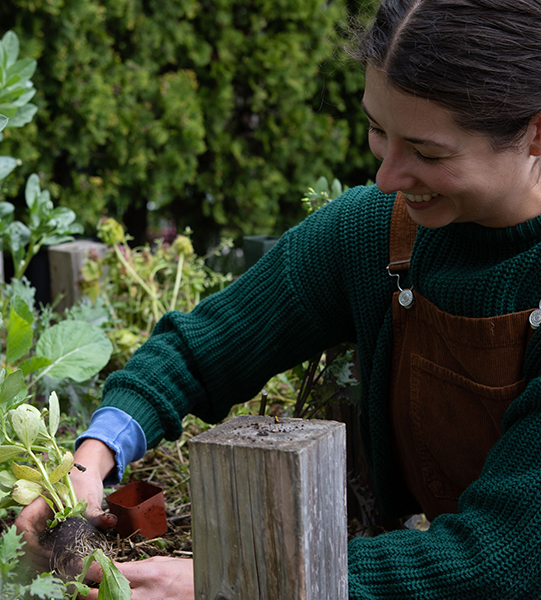Apprenticeship Style Learning
NUNM’s College of Chinese Medicine provides a scholar-practitioner focused program devoted to tapping the source of the ancient Chinese medical system through studying classical texts, acupuncture, Chinese herbal medicine and other modalities. What is a scholar-practitioner program? It is a unique curriculum in which you will have an intensive one-on-one relationship with your teachers, mentored in the classroom and clinic. Unique to NUNM’s CCM program, you will be given the opportunity to shadow the faculty member of your choice for a full year of clinical acupuncture rotations, based on the style of acupuncture that most interests you.
Explore the Chinese Texts: Discover the Roots of the Medicine
The history of Chinese medicine reaches back thousands of years, codified through ancient texts. At NUNM, we train students to explore and embody the richness and power of the classical approach to Chinese medicine, including access to knowledge not typically taught in Western language. Unlike Traditional Chinese Medicine (TCM) practitioners, classically trained practitioners are deeply immersed in the wisdom of the classical texts, and view them as the root of Chinese medicine. Within a single classical text, for example, translating one word differently can completely change the interpretation of the text, so we encourage students to experience the richness of the classical texts, personally discovering the possibilities of different interpretations. This in turn, gives you access to the inherent wisdom of classical Chinese medicine, while assisting you in diagnosing and treating your future patients—and greatly improving your patient outcomes.
“NUNM felt like the best fit, with its emphasis on inner cultivation, its abundance of modalities, and its promotion of classical texts. We have access to an amazing range of top-notch practitioner-scholars.”
Doctor of Acupuncture with a Chinese Herbal Medicine Specialization, Master of Acupuncture with a Chinese Herbal Medicine Specialization, Class of 2017
The Five Pillars of Classical Chinese Medicine
Herbs, acupuncture, body work, diet, and taiji or qigong comprise the pillars of CCM. You will be exposed to several Chinese medicine lineages, including: Worsley 5-Element, Dragon Rises/Red Bird Flies (Shen-Hammer), Japanese and more. Within these lineages, different aspects of Chinese medicine are emphasized― pulse-taking, acupuncture needling styles, herbal formulation, diagnostic paradigms, and non-needle therapies― which strengthen your breadth of knowledge as a practitioner.
Classical Chinese Medicine Programs: DAcCHM and MAcCHM
NUNM offers two CCM programs—the Master of Acupuncture with a Chinese Herbal Medicine Specialization (MAcCHM) and Doctor of Acupuncture with a Chinese Herbal Medicine Specialization (DAcCHM). The MAcCHM is the foundation of the DAcCHM, with the latter having an additional 48 credits and 582 hours. Students in both programs gain a strong classical orientation to the medicine. A primary goal of the DAcCHM program is to set graduates firmly on the path of the scholar-practitioner, capable of uncovering ancient knowledge and integrating it into modern-day clinical practice. In addition to learning to read and translate classical texts, DAcCHM students gain a more complete understanding of the philosophical, historical and cultural context of the medical texts, as well as later developments in Chinese medicine. The doctoral curriculum also prepares graduates to more fully embody the knowledge, skills and behaviors necessary for classical Chinese medicine practitioners to integrate, communicate and collaborate within the biomedicine-based healthcare system.
Need to complete your bachelor degree first? Check out our Integrative Health Sciences degree, which will prepare you for our Master or Doctor of Acupuncture with a Chinese Herbal Medicine Specialization program.

